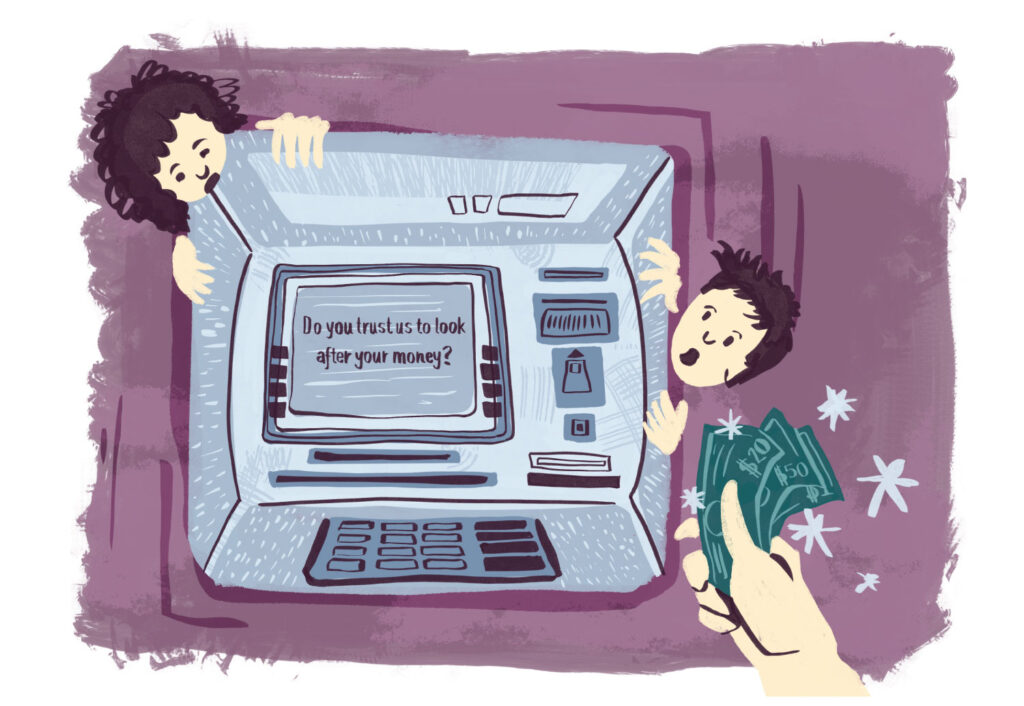
Banking for teens – A Guide to How Banks Work

What is a bank? – Banking for Teens
I’m sure you all have a piggy bank at home. A place to put coins you’ve saved up. This means you are on the first step to looking after your money. You know the risks of keeping loose change in hidden places. Putting your savings in one place is important. A bank can do this and so much more.
A bank can lend money to those who need it, create new money if others need it in an emergency, and, most of all; they can keep your savings safe from others.
Today we will be learning about how banks operate and the positives and negatives of banking for teens first studying this subject.
How Banks use money – Banking for teens
- Storing
Banks store your savings in various accounts. You can access these online and log into your account on the bank’s website.
You can also go into any bank store and access your account by talking to someone who works there. They show customers money going in and out per month.
You can also pay others by sending direct payments to people online.
Certain banking for teens can help them navigate spending by sending alerts on their phones for overspending.
Banks can also categorise your spending, so you are aware of spending money irresponsibly.
Do not be fooled! Like all banks, they are a business.
They use your money and spend it on things that are suitable investments. Some money does get stored as I’m sure you have seen banks with extensive vaults full of gold before.
However, there isn’t an area in the bank store for your name and money placed in it. It is in one large room with everyone else’s money all mixed up.
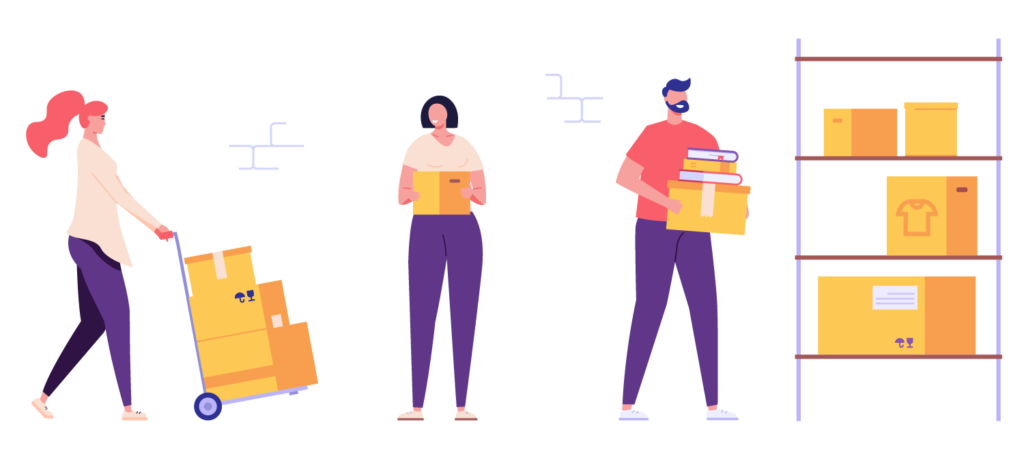
- Lending
Banks can give money to those who need it. This is called a Loan. They give loans to start-up businesses, governments and just ordinary people.
Depending on what you need it for, the banks could view your application as reliable or unreliable.
With loans comes paying it back. You cannot just get free money for being a nice person.
Banks will charge you more than what you borrow and ask you to pay it back over a long period. This is called interest.
This protects the bank from running out of money. They, in turn, make more money or profit.
When the bank lends you this money, they create new money to be stored in your account and record their money as being removed or in minus.
Banking for teens can be tough to navigate as you will not be able to ask for a loan yet.
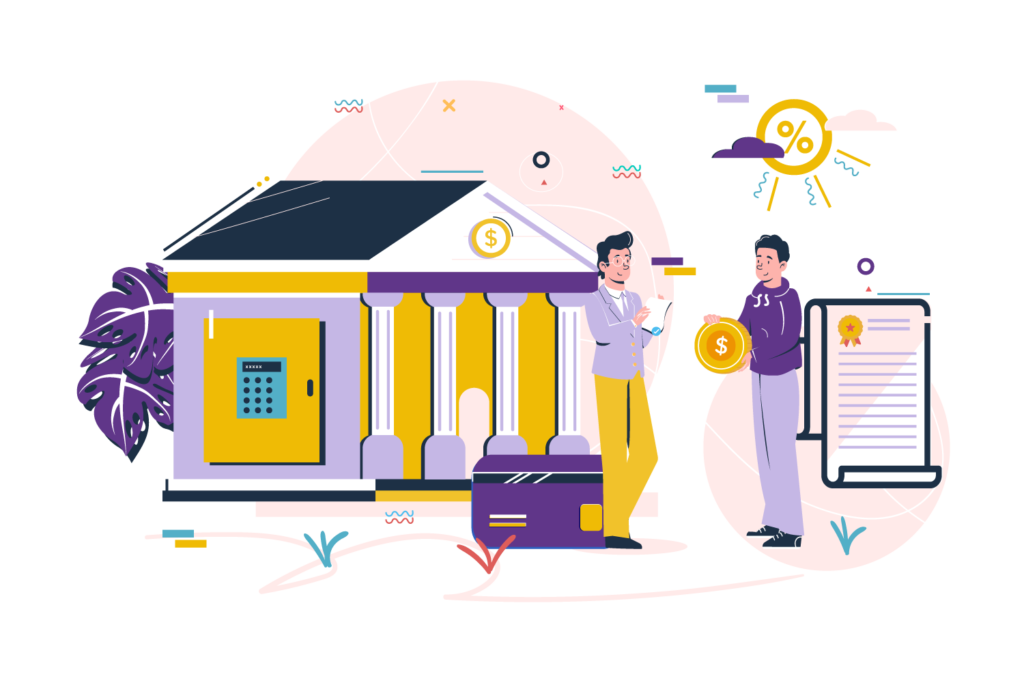
- Creating
A large amount of money has been made up to lend people money for their adventures and opportunities.
The number on your bank statement isn’t exactly accurate. This wouldn’t be possible if everyone decided to take their money out of the bank.
If you were the only person to take your money out in cash, the bank could do so. Money presented online as a number has taken a long time to operate like this. Previously, people have threatened to take all their money out of the bank. This is called a bank run.
An example is the 1946 Christmas Film ‘It’s a Wonderful Life’ where a bank run occurs in the local town.
If the bank runs out of cash, it is no longer functional and will shut down effectively.
To stop this, other banks may help by lending money to them. The government can also advise and support local banks to ensure their customers’ money.

Other Types of Banking for Teens
- Investment Banking – Banking for teens
Investment banking relies on asking others for shares in a particular business or selling the company to investors.
Investment Banks will not loan money out to others like the bank but, instead, ask the owner to consider other options to keep the company afloat.
They have many connections to many different companies, and so they provide support by being reliable. They charge a large amount for this service.
Investing will come later in the course of the topic.
After understanding banking for teens, your adult career may take you into investing.

- Offshore Banking – Banking for Teens
In almost every country, you must pay taxes. This is money that the government asks for to pay for services such as police, firefighters, teachers and more.
This can provide a problem for many businesses if they want to keep their profit.
Offshore banking is a way of storing people’s money abroad to avoid tax charges from the government.
It is beneficial for someone who runs a large company.
Shell Company – A company set up in another country to avoid taxes.
Keep this in mind – Governments lose out on money they need to supply to people who need funds like schools, roads, and arts communities.
They lose $700 billion a year due to other companies wanting to keep their money and set up offshore accounts or shell companies.
- Crowdfunding – Banking for Teens
This is when people and businesses can pitch ideas to other companies to help pay for a venture.
A large number of people have to be interested in supporting the venture.
These can be caused by an emergency crisis’ or a consensus for a particular product.
An example may be that people need a bridge in a local village to drive over the local flooding every morning. The council doesn’t approve that the bridge being created is of high priority.
Another example could be a delivery food service for people who have COVID. These people are struggling to get out of their houses and go shopping. They have the money to get the food but not the ability.
Crowdfunding is less strict than relying on a bank to provide the money. The community is involved in your idea. Often, the people affected the most by these incidences are the ones who organise crowdfunding in the first place.

- Credit Unions – Banking for Teens
This is also an organisation run by the people. However, they don’t have an organisation that runs the bank.
Instead, members borrow money from one another. They put all their money together and divvy it out to the people that need it the most.
They don’t charge as much money on a loan as banks do. But they also appear more online, which makes them less reliable to talk to. Traditional banks are always available for meetings.
Any income that is made from the credit union is then put back into projects that the members are interested in.
It’s more orientated towards the member’s best interest. Whereas a traditional bank has to take into consideration its own employees and the general opinions of the country and its government.
A lot of people who are members of credit unions are together because they are in the same line of work or share common interests.
They also do not pay corporate tax.
What have we learnt? – Banking for Teens
Everyone should own a bank account. It is the most significant way to keep your money. Banking for teens can even allow you to take your understanding into adult life.
We understand there are other banking options for where to put your money.
It is beneficial always to consider these options and choose the best for your situation.
Remember, the bank is a business as well. They take money, use it to gain profit and keep the bank afloat. It is the same as any other business or company.
There may be risks with choosing Investment Banking, Offshore Banking or Crowdfunding, but there are also many benefits, including getting more for your buck and having support from people with more to give!
However, if you decide to save, invest, or spend your money, you must be aware of the consequences and rewards that can occur because of your decision.
Want to Learn more?
Log into your CFS online account and find out more about Money Management!
ACTIVITY
Try to pick a type of bank from:
- Investment Banking
- Offshore Banking
- Crowdfunding
- Credit Unions
List out the pros and cons of this particular bank. What is good about this bank? What might be bad about this bank? Why should you be involved in this bank?
Further Learning on Banking for Teens
Revision:
- External finance – Banks – Sources of finance – National 5 Business management Revision – BBC Bitesize
- Education resources | Bank of England
Things to watch/listen to about banking for teens:
- Gumball | The Bank of Elmore | Cartoon Network – YouTube
- Elmo’s Adventures in Spending, Saving, and Sharing on Apple Podcasts
- Regular Show | Piggy Bank Robber | Cartoon Network – YouTube
Kickstarter is a platform used for crowdfunding and looking for people who show an interest in your start-up company. Here are some games featured on their website that has involved crowd funding. You can see how much they needed and how much was actually raised from the Kickstarter project.

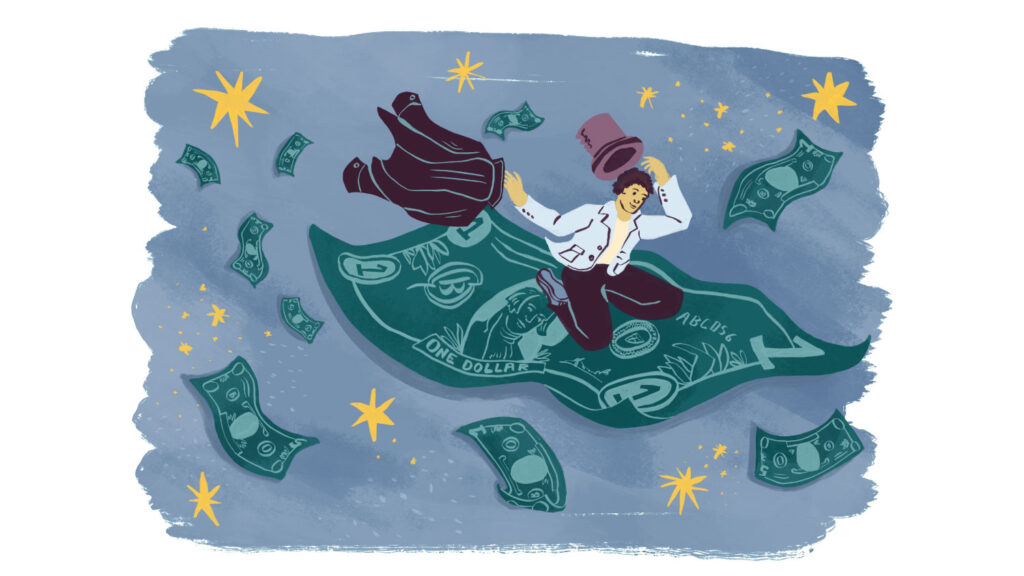
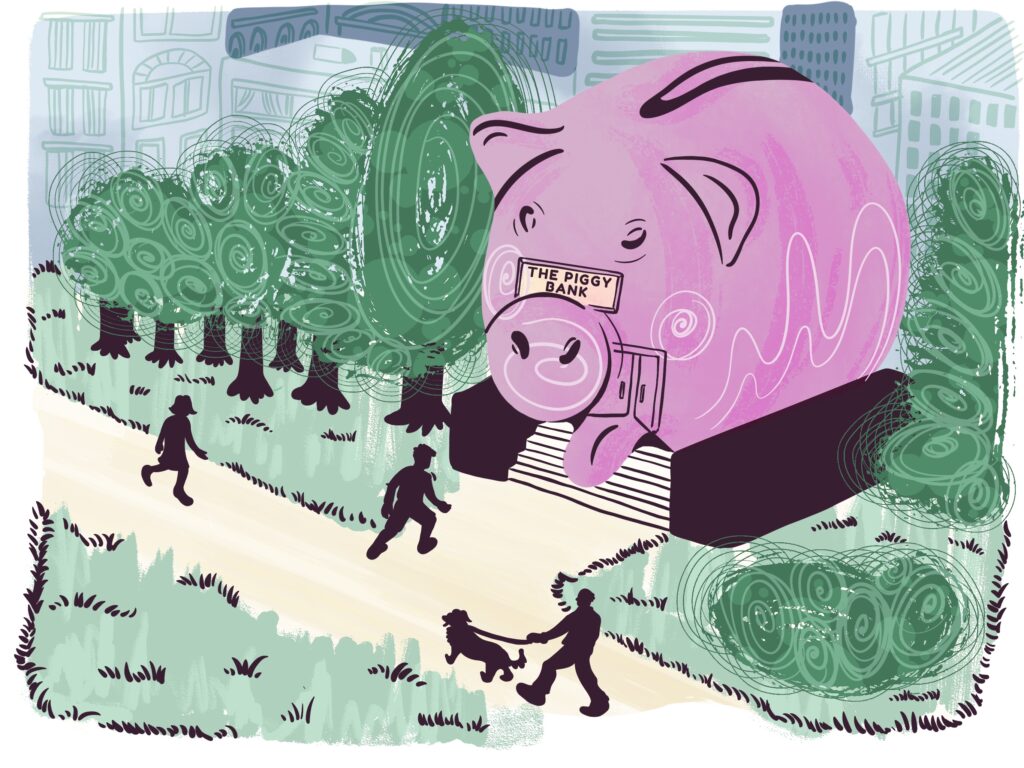
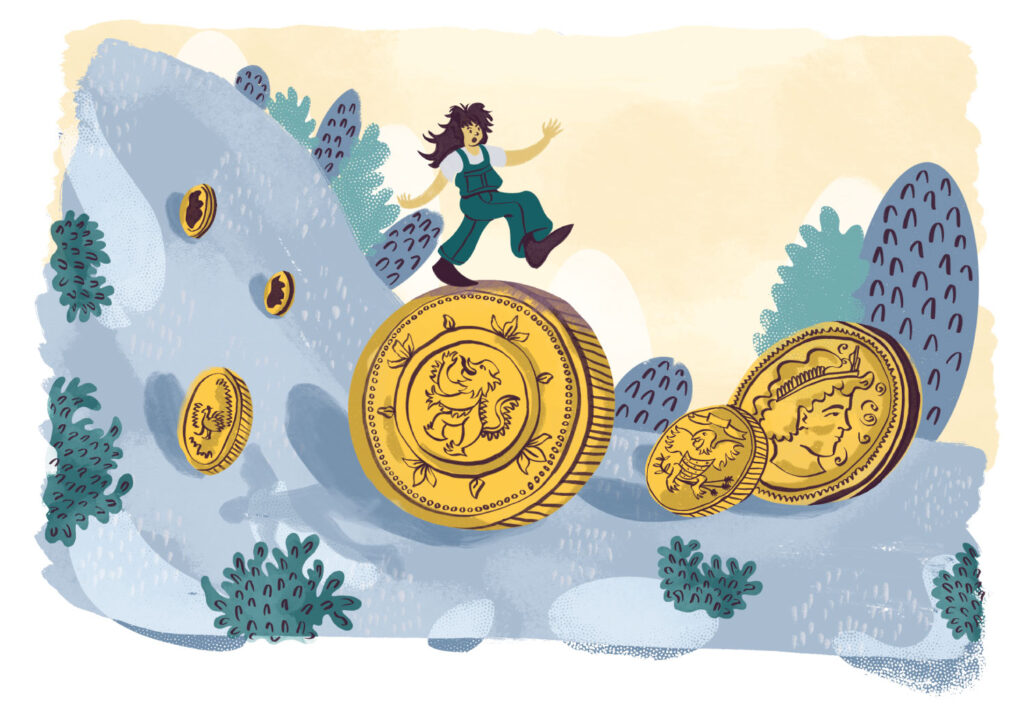
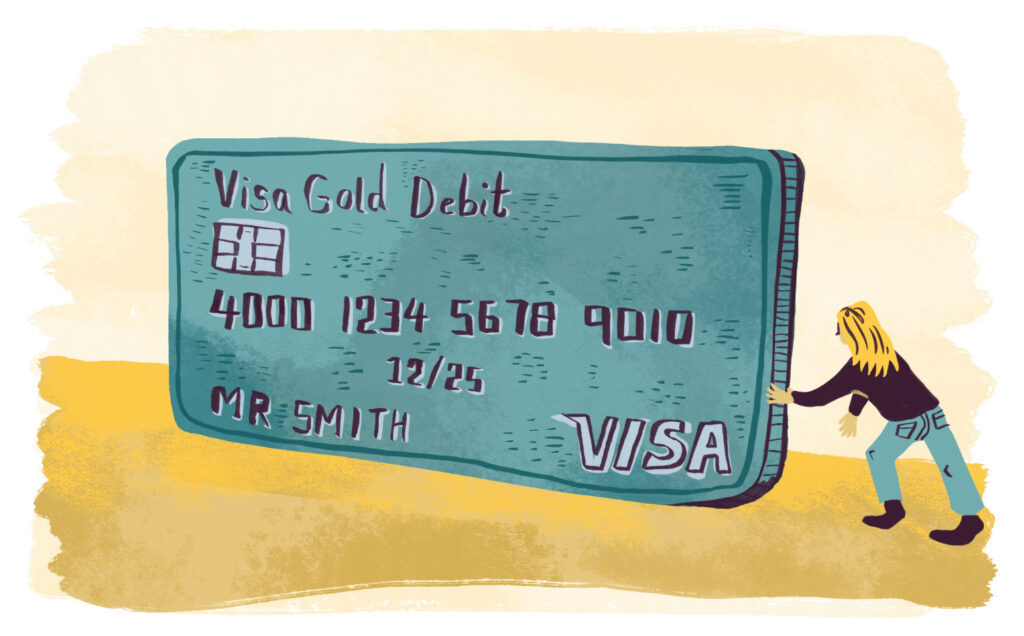
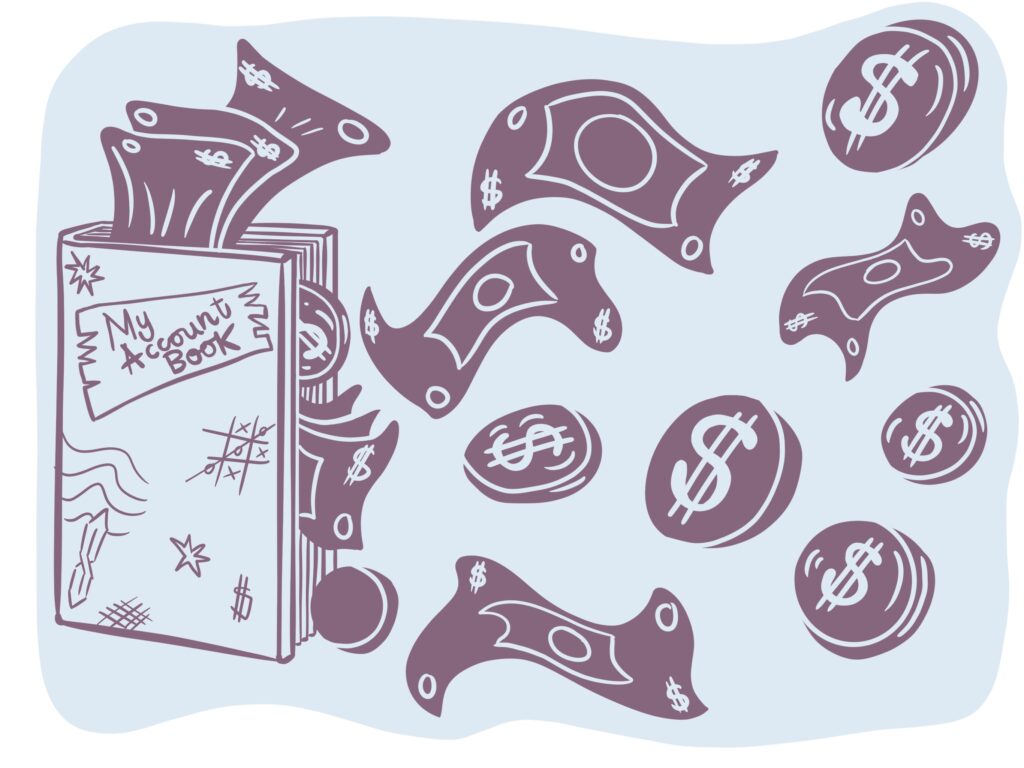
Responses